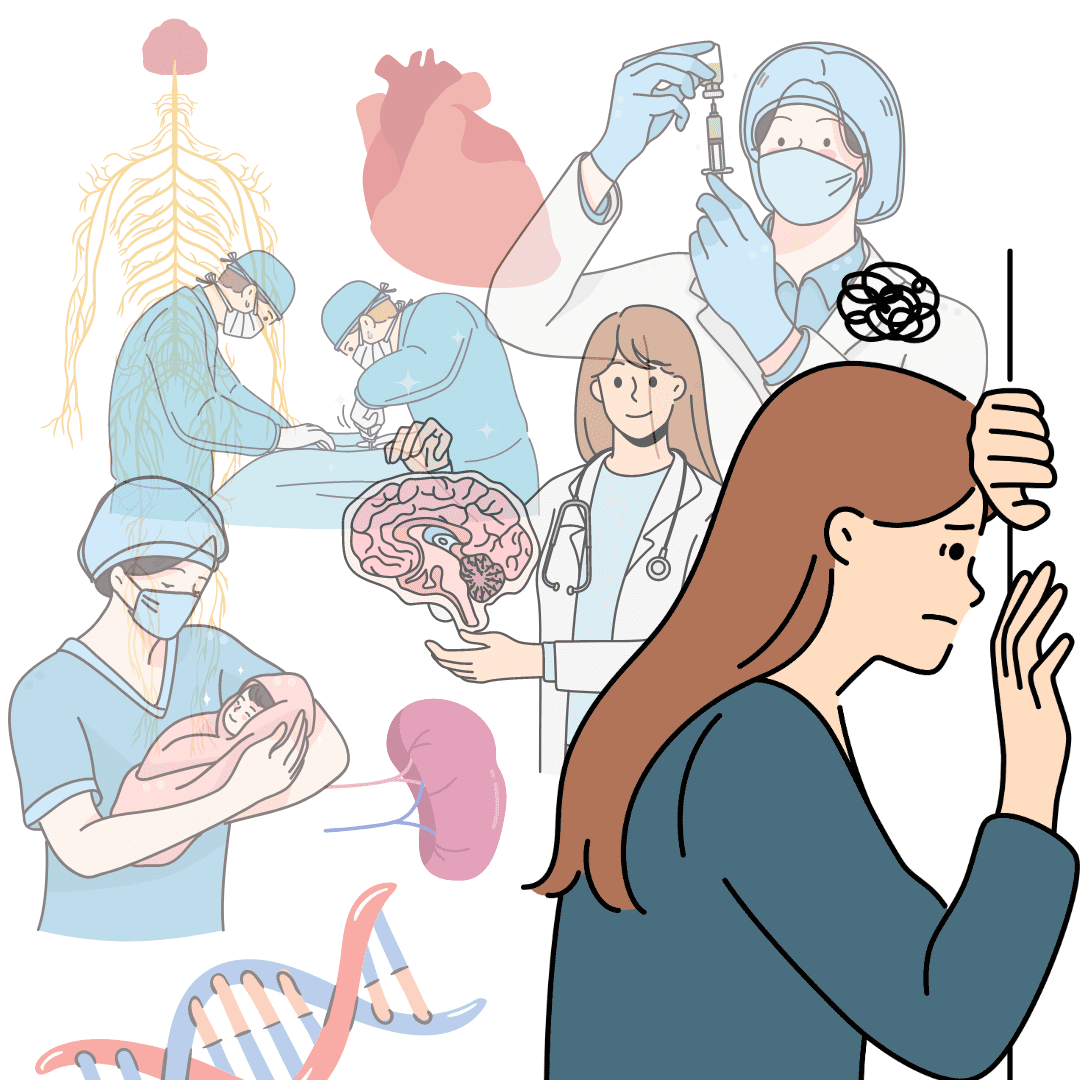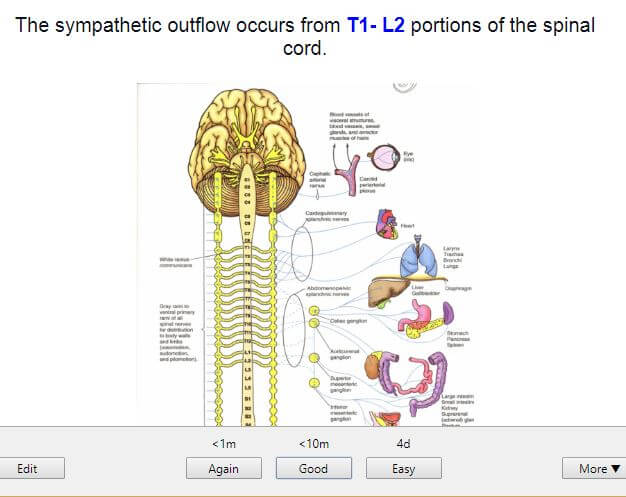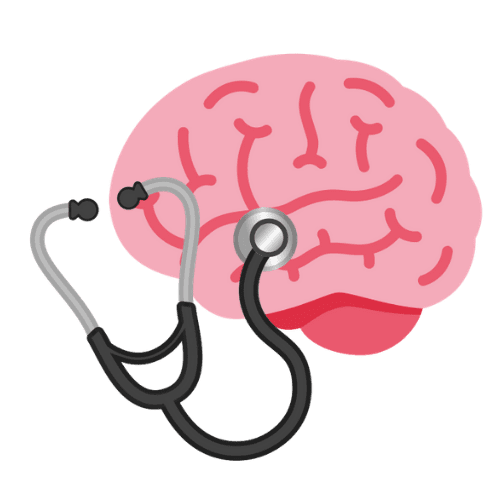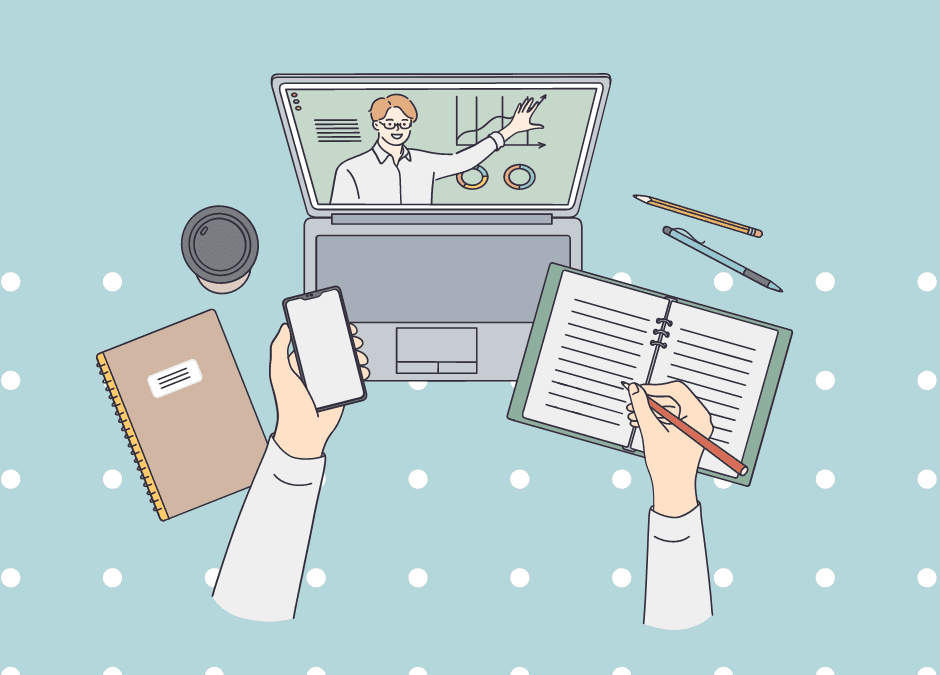When you’re a medical student, you have to study hard, and this is much more difficult if you have ADHD.
I wasn’t diagnosed with ADHD until the summer after my second year as a medical student, and the news was honestly a big relief for me. This is because it explained why I had struggled so much academically, to study and pass exams
I did well in my A-Levels, and got into uni, but my two years of sixth form were grossly unhealthy and I never felt anything other than frustrated and burnt out. Nothing seemed to stick in my head from all my hours of study – especially chemistry!
However, I made it, and became a medical student. Although I’d always managed to get the grades I wanted at school (usually at the 11th hour) this didn’t happen in my first year at St Andrews. I studied in exactly the same way I did in sixth form, complete with stupidly long hours, caffeine and tears.

When I got my first set of exam results, I’d barely scraped a pass.
I decided I needed to study harder, and pushed myself to a point where I ended the academic year on antidepressants. My mood was terrible, and I felt really hopeless. Eventually I passed my exams with a slightly improved grade, but again too close to failure.
This was a really frustrating time.
The cycle repeated, with a short stint on academic probation, until I was finally diagnosed with ADHD in June 2020. From there, my grades shot from a very low third-class to a percentage point off a first. I finally felt like a “real” medical student.
The medication I now take certainly helps with keeping me focused, but I’ve also changed the way I study. Knowing I had ADHD gave me the motivation to try and research ways of ‘hacking’ it, using the scientific reading skills I had learned as a medical student. I knew I couldn’t fight my attention-deficit medical student brain, so I spent hours on the internet finding ways to work with it, to my advantage.
Different things work for different people with ADHD, but in this post I am going to share how I study as a medical student.
First of all, the philosophies I apply to everything in my life…
1. Little but often.
2. Brain rest is important.
3. If you can’t get past brain fog… give in.
Through trial and error, I’ve learned that I can only be productive for a limited amount of time. Two hours straight is my absolute maximum, but I can study up to four hours in a day if I break it into 45 minute chunks.
Trying to force myself to study for any longer, even if I’ve not achieved much, is completely counter-productive. I get very little done in the grand scheme of things. It also usually leaves me too burnt out to get anything done the next day.
When we rest and relax, our brains consolidate the information we’ve been taking in, and commit it to memory. I think this is really cool. Even though you feel like you’re not doing anything productive when you scroll on your phone or have a sleep after focusing, your brain is still doing some serious work behind the scenes.
These are the rules I live by, whether it’s studying, work for the BMA, or writing my blog. If I’m really not in the mood to study, forcing myself to ‘be productive’ is likely to achieve very little. It will also impact how I feel tomorrow too.
But how do I study?
The ‘little but often’ method applies to my tools for studying too. Because I have ADHD and get burnt out easily, I like to focus on quality over quantity when I study, which isn’t always expected for a medical student. I start from day one of the semester, and do small but consistent amounts over the following weeks. This minimises the amount of cramming I have to do, which ADHD brains aren’t great at.
Therefore I use tools that I can do repeatedly, a few times over to get information in my brain. You might have guessed already what I’m describing…
Yep… flashcards.
Flashcards allow you to learn and review material in a bitesize, efficient way. Just reading text doesn’t really help you memorise it. It’s much better to actively learn, by using and manipulating information, and testing yourself. This is what I use flashcards for. I personally use ANKI for my flashcards, which I know students usually either love or loathe.

There’s three reasons why I personally like ANKI.
1. The algorithm does all the work.
ANKI works out when you should repeat flashcards to learn them best. This saves me the work of guessing which ones I haven’t done in a while. I find this especially helpful when I have a lot of flashcards, which leads me onto my next point…
2. Flashcards are easier to keep track of.
If you have ADHD, you are probably very familiar with the pain of losing your possessions on a daily basis. My ANKI flashcards are all backed up in the cloud, so I can’t leave them on the bus or drop them in a puddle. They’re accessible from any device, too.
3. You can make it fun.
There’s lots of add-ons you can download to spice up your flashcard experience a bit. Some make it more like a game, such as Pokemanki. This extension lets you catch Pokemon as you learn. I like the Review Heatmap add-on, which visualises your daily activity. I find that this motivates me to try and keep a streak going! ADHD brains love a game, and ANKI add-ons can hopefully make flashcards a little bit less painful.
You can download pre-made ANKI decks from their website, but I prefer to make my own for study purposes. This is because I can match my medical school’s curriculum and my way of learning.
I convert every lecture, tutorial and dissection session into flashcards. Some are questions, and others ask me to identify structures or clinical signs in an image.
It does take a while to write flashcards, but I find the act of making them myself allows a bit of first-pass learning. By the time I get round to doing the flashcards, I’ve already seen the content before.
If you really don’t want to write your own, and you can’t find any suitable pre-made decks on the ANKI website, ask around your med school. A medical student in an older year is almost guaranteed to have some study decks they made, and they might not mind sharing with you.
I use other methods of studying too, besides flashcards, but I’ll talk about these in a future post – this one is already long enough!
Routine and Environment
A study routine is key when you have ADHD. Humans are creatures of habit, and it signals that your brain needs to get into ‘work mode’. The right environment to study is also imperative. I’m a fairly social medical student, and I can’t study where there’s any risk of me procrastinating by chatting with others, so the non-silent section of the library, and the kitchen at home, are not places I can get a lot done.
I do 99% of my studying on my laptop, so it’s all backed up and I (usually) don’t lose it. At home, I usually study alone in my room to minimise distraction. If there’s any noise, I’ve got wireless, noise-cancelling headphones. These are a godsend, as even the sound of drinks fizzing or electronics humming can distract me.
I also have a monitor on my desk – this allows me to have two screens when I’m working in my room, one of which is quite big and so better for my eyes when I’m staring at a screen for a majority of the day. However, I prefer my laptop to a desktop PC. This is because I can unplug the laptop easily to take it away with me if I fancy working with a change of scenery.
My ‘study routine’ is fairly simple.
If possible, I try and get some exercise just beforehand, whether that’s a walk, a gym session, or just stretching for 5 minutes. Studies have shown that exercise sharpens your focus, and especially so for those with ADHD.
I also fill up my water bottle so I don’t need to go to the kitchen for a drink (and potentially get distracted), grab a small snack (for the same reason), and take it all up to my room and close the door. This is a solid signal to others that I need to concentrate. Next I turn on Forest on my phone, on stopwatch mode. I also place it at least a metre away to be sure it won’t tempt me. Then I load up on the computer whatever I’m working on, and I set a Pomodoro of 45 minutes on TickTick.
Once I’ve put my glasses on, I start the Pomodoro, and it’s time to work. After 45 minutes, if I want to continue to study, I can with a stopwatch. If I want a break, I take one and then do another Pomodoro.
It gives me an ‘out’ to motivate me into actually starting, but it’s up to me if I want a break or not. Usually I will take 15 mins break though, so I can go on for longer. As I said above, if I study for two hours non-stop, I won’t get anything else done for the rest of the day, and tomorrow might be ruined too.
Generally, I try to do 15 minutes of ANKI every day.
I study more if I feel like it, but the bare minimum is still better than nothing. Review cards can stack up quite quickly, and trying to do them all isn’t great for your working memory either. I’ve learned that it’s really important to protect myself from burnout, because I won’t get anything done if my brain doesn’t want to work. Let’s face it… that can be really inconvenient. Sometimes I do 15 minutes of PassMed or another question bank too, but that’s negotiable.
All in all, I aim to study for 30 minutes a day.
Some medical students may think that’s far too little. However, some study is always better than nothing, and if I set too-high expectations for myself, I might not start at all. Usually I do end up doing more than half an hour. However, if I don’t, I won’t let myself feel guilty, because I’ve done enough. I’ve hit my target. There is no point beating yourself up about anything in life, but especially studying. Even if you only manage 20 seconds of staring at a flashcard, you’re probably still doing more than someone else. Most importantly, the only person you need to compete with, or aim to impress, is yourself. No one else fully understands your personal barriers to focusing – what others see as their bare minimum, is your maximum, and that’s ok.
Your best is honestly enough. Slow and steady wins the race.
Although there’s a fair amount of research into how people with ADHD can study best, there’s still some personal variation in that. People with ADHD aren’t a homogenous group, and we all experience the condition differently, so different approaches to things like studying are also perfectly ok. You might prefer to do one big chunk of work and get it over and done with, or sit down for small 15 minute sessions throughout the day.
I’m always keen to learn and adapt my study routine and habits to cooperate better with my brain, and I’d love to hear about what works for you.
How do you study?
You can comment on this post, or check out our social media links, and anonymous submission form.


Great post. Super helpful, And your methods must be working as you’re managing to run this blog whilst in Med School – Kudos!
I am a 16 year old guy with inatentive ADHD, I want to study medicine because I want to be psychyatrist. I know that still I have 2 years until I reach university, but I want to try your methods for studying during the next years because I want to study harder and demonstrate I can do it. Thank you a lot for this post!
Snacks and water! SNACKS AND WATER.
This is an awesome list and what I’ve been actually finding works best for me too.
Thanks for sharing!